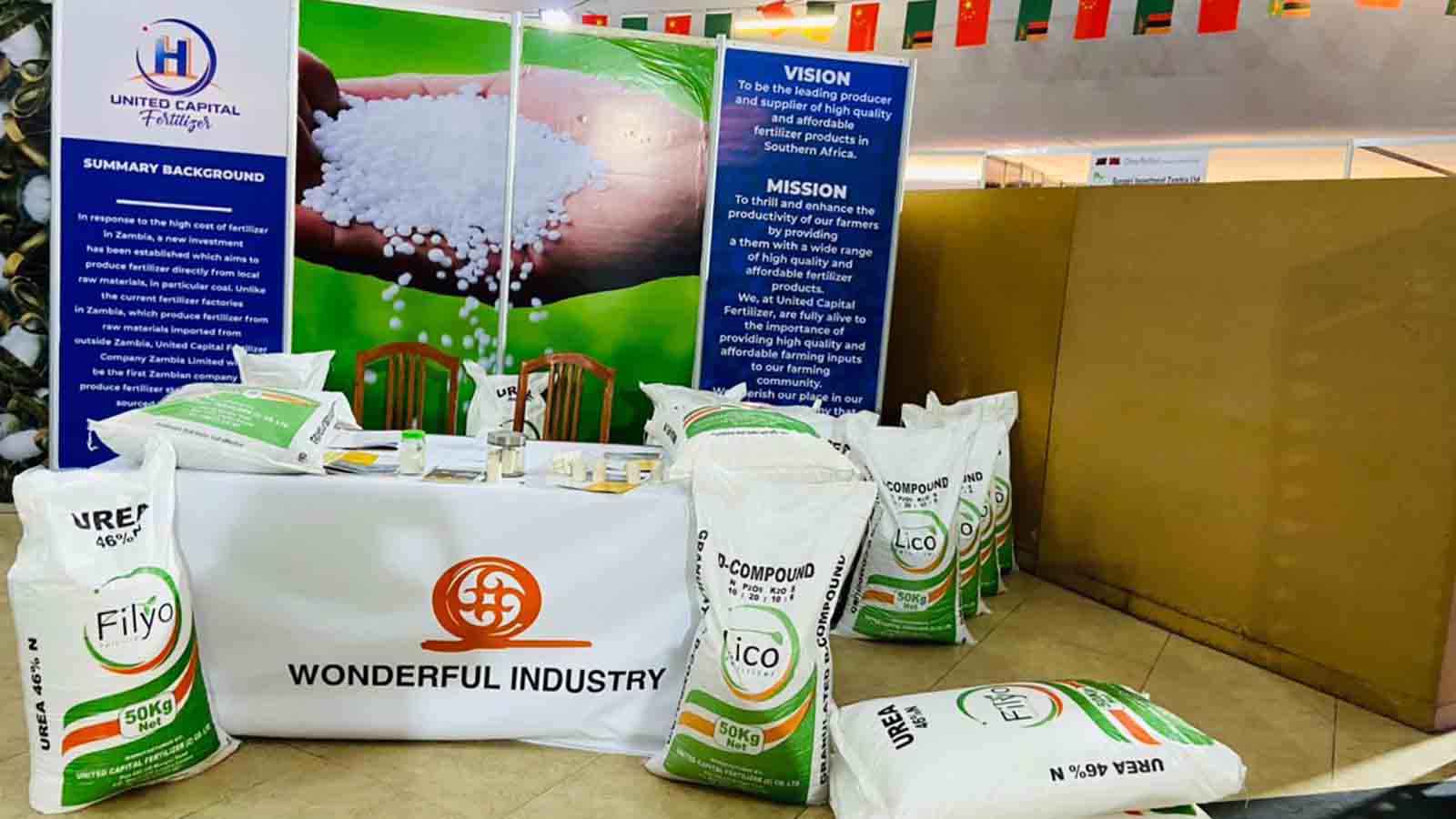
United Capital Fertilizer (UCF) has announced plans to increase its fertilizer production from 200,000 metric tons this year to over 300,000 metric tons next year, which is expected to have a significant impact on farmers and the country as a whole. UCF Chairman, Chance Kabaghe, shared this information in an exclusive interview with the Zambian Business Times (ZBT), highlighting the potential benefits of increased local fertilizer production.
With the planned increase in production, UCF aims to satisfy the local and regional market, which would result in reduced commodity prices. This would eliminate the need for Zambia to import fertilizers and make the country self-sufficient in meeting its fertilizer requirements. The increased production would not only cater to the Government’s needs under the Farmer Input Support Program (FISP), but also provide enough fertilizer for individual farmers who may wish to purchase the product at an affordable price.
UCF’s production is expected to reach over 300,000 metric tons in 2024, translating to a total of 600,000 metric tons of both Urea and D compound fertilizers. This is anticipated to meet the local and regional demand for fertilizers, resulting in a more stable supply chain for farmers in Zambia and neighboring regions.
Kabaghe emphasized that the fertilizers produced by UCF would be certified by Mount Makuru and the Zambia Bureau of Standards, ensuring quality and safety. The aim of UCF’s increased production is to complement the seed industry in Zambia, which is already self-sufficient in seed production. By having locally-produced fertilizers readily available, Zambia can become a fully sustainable regional food basket, with timely access to both seeds and fertilizers.
In addition to the positive impact on farmers and the agriculture sector, Kabaghe mentioned that the increased production would also create more jobs within the country. Moreover, farmers would benefit from lower fertilizer prices compared to imported fertilizers, as the production overheads would be lower for locally-produced fertilizers.
UCF is committed to ensuring a year-round supply of fertilizers in Zambia, producing 24/7 throughout the year. This would change the narrative of fertilizers being available only during the rainy season, ensuring that farmers have access to fertilizers when needed.
Kabaghe also highlighted UCF’s long-term plans, which include exporting fertilizers to the region, thereby earning foreign exchange from Zambia’s own fertilizer production. He stated that the total investment for the UCF plant would go over $1 billion, with $600 million already invested in the second phase of production. Currently, UCF is able to produce up to 200,000 metric tons of both Urea and D compound fertilizers, with plans to reach 600,000 metric tons next year (300,000 metric tons each of Urea and D compound). This would make Zambia more self-sufficient in fertilizer production, with only minimal imports.
Furthermore, Kabaghe explained that UCF’s future plans include blending fertilizers to suit the deficiencies of soils in different agro-ecological zones. This approach would involve testing soils in specific areas and formulating fertilizers accordingly, rather than using blanket recommendations of Urea and D compound fertilizers throughout the country. This would ensure that the fertilizer composition is tailored to the specific needs of different soil types, optimizing crop yields.
Kabaghe also encouraged other companies interested in fertilizer production within Zambia to invest and address the long-standing issues surrounding fertilizer supply in the country. He emphasized that UCF’s investment is aimed at providing everything that the Government requires for its fertilizer needs under the FISP and supporting local farmers.
In conclusion, UCF’s planned increase in fertilizer production in Zambia is a significant development that is expected to benefit farmers, the country’s economy, and food security. It will help meet the local and regional demand for fertilizers, reduce commodity prices, create more jobs, and contribute to Zambia’s self-sufficiency in fertilizer production. With continued investments and efforts to address soil deficiencies through blending fertilizers, Zambia is well-positioned to enhance its agricultural productivity and become a key player in the regional fertilizer market.


















